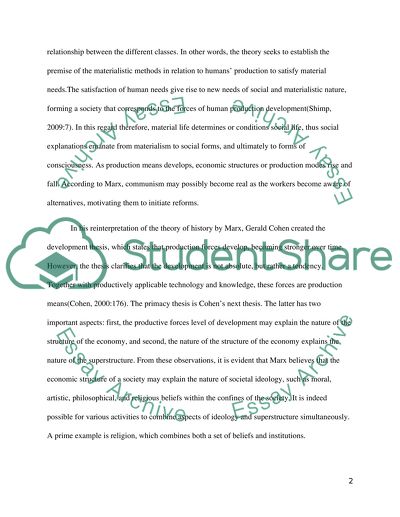Cite this document
(“Marx's historical theory Essay Example | Topics and Well Written Essays - 3000 words”, n.d.)
Retrieved from https://studentshare.org/philosophy/1396476-marx-s-historical-theory
Retrieved from https://studentshare.org/philosophy/1396476-marx-s-historical-theory
(Marx'S Historical Theory Essay Example | Topics and Well Written Essays - 3000 Words)
https://studentshare.org/philosophy/1396476-marx-s-historical-theory.
https://studentshare.org/philosophy/1396476-marx-s-historical-theory.
“Marx'S Historical Theory Essay Example | Topics and Well Written Essays - 3000 Words”, n.d. https://studentshare.org/philosophy/1396476-marx-s-historical-theory.


